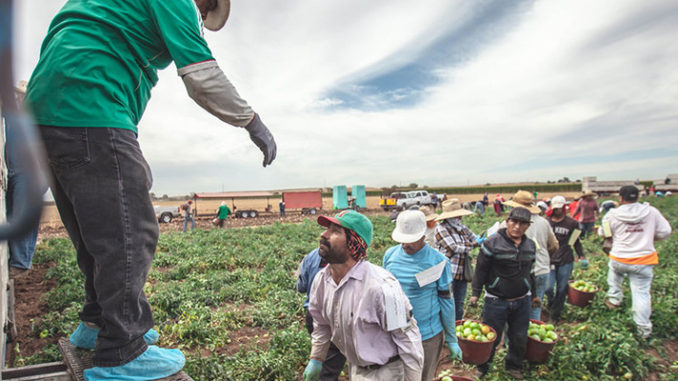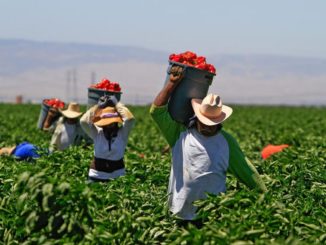
Joe Del Bosque
As a child, I picked melons in California’s San Joaquin Valley alongside my dad. Now, decades later, I own a 2,000-acre farm, employ a full-time staff of 25 and hire up to 300 more people at peak harvest. Most of them are immigrants. As both a laborer and an owner, I understand how important immigrant labor is to American agriculture — and the critical problem we’ve reached with worker shortages. Without providing farmers a consistent, legal workforce, our entire agricultural economy is at risk.
That’s why I applaud the House of Representatives for passing the bipartisan Farm Workforce Modernization Act this month. This timely legislation, supported by a majority of Democrats and 34 Republicans, would give legal status and a pathway to citizenship for more than 325,000 undocumented farmworkers. It’s not the definitive solution to our labor problems, but it’s an important start. Now we need the Senate to join the effort and stand up for pragmatic reform.
Every farmer knows how difficult it is to find reliable workers. My employees work in the sun for up to 10 hours a day, seven days a week handpicking our melons, asparagus and cherries. Like most farmers, we’ve tried to hire U.S. citizens. But most of them don’t seem to want to do this work, which means we must rely on immigrants. But the H-2A visa program for employing temporary workers, which many farmers use to staff up during the harvest, is an incredibly slow process. You cannot count on the timely arrival of workers.
I’ve lost money because my crop rotted in the field when workers weren’t able to get there on time.
Nobody sets out to hire undocumented workers, but many farm owners have no other way of getting the harvest in on time. The bill would help employers and employees do things aboveboard, granting those who have worked in agriculture for at least 180 days over the last two years the opportunity to apply for a new “certified agricultural worker” status. And it would offer a path to legal permanent residency for longtime farmworkers.
In the past, labor laws allowed American farms to flourish and benefited families like mine. When my ancestors emigrated from Mexico in the early 1900s, all they had to do was arrive at the U.S. border, pay a fee for a green card and they were welcomed into the U.S. to work. In the 1950s, my father, a second-generation American, was promoted from the fields to become the manager of a melon farm. Growing up around the business, I dreamed of owning my own farm. In 1985, at age 36, I’d saved enough money to do just that. Two years later, I brought my dad in as my business partner. Del Bosque Farms has been a staple in California’s Central Valley ever since.
I would love to see more immigrant workers assimilating into American society and achieving the American dream as we have. But I also understand that U.S. farms will always need people who are just starting their lives here. On my farm, most of the children of immigrant farmworkers choose college over working in the fields. When our workers reach retirement age, replacements are not standing in line. We will always need new workers who aren’t living in the shadows or being exploited by smugglers to help pick our fruit, milk our cows and butcher our meat.
American farms have a continued reliance on labor, which won’t suddenly stop existing. If we don’t act, California’s $54-billion agriculture sector may shrink beyond recognition. Far too much of it has already moved to Mexico.
The Senate needs to follow the House’s lead and pass the Farm Workforce Modernization Act, which would help farms like mine survive.
I have children working on the farm with me, and their future as farmers will depend on being able to hire a reliable workforce.
Joe L. Del Bosque is the CEO and president of the family-owned Del Bosque Farms in the San Joaquin Valley.
.



